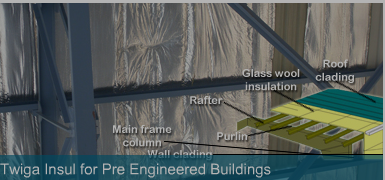Thermal Insulation can be defined as which prevent heat moving from one place to another. In other words, Thermal Insulation is combination of materials which retard the flow of heat. The materials can be adapted to any size, shape or surface. Due to thermal insulation, the room remains cooler in summer and warmer in winter than outside. Hence, a room provided with thermal insulation gives comfort both in summer and winter.
Thermal insulation Delhi
is very much important as that is the place where the population so much and the place to live is very less and the traffic and pollution is high as it have so many industries and its also the political city of India. Thermal insulator refers to a material that blocks conduction it is an important technology that reduce energy consumption in buildings by preventing heat gain or loss through the building envelope. Thermal insulation is a construction material with low thermal conductivity. The purpose of thermal insulation in buildings is to maintain a comfortable and hygienic indoor climate at low different temperatures.
Thermal insulation is required to protect the constructional elements against thermal impact and moisture damage. The main aim of thermal insulation is energy conservation leading to a decrease in heating demand and the protection of the environment which is the aim of thermal insulation Delhi of new buildings as well as in renovating the buildings. Due to all this factors in India specially in Delhi, where the temp. raises in summer and in winter it falls so there is need of Thermal insulation which is the reduction of heat transfer between objects in thermal contact .
- Energy Saving: Due to thermal insulation transfer of heat between inside and outside of the room is restricted. This results in less quantity of energy required for maintaining the desired temperature in the room.
- To get the most efficiency out of a heating and cooling system because less heat escapes or enters a building.
- Prevention of thermal stress on roofs. Due to thermal stresses, roof decks tend to crack. These would be reduced to a great extent.
- Generally over-the-deck insulation materials are much lighter than the currently used brickbat coba or concrete, resulting in reduced dead weight on the roof slab.
- Prevent the transmission of heat from exterior building walls which capture the heat energy from the sun.
- Non-Toxic, Environmental friendly solutions.
- Prevent the escape of hot or cool air from the interior rooms to the outside.



No comments:
Post a Comment